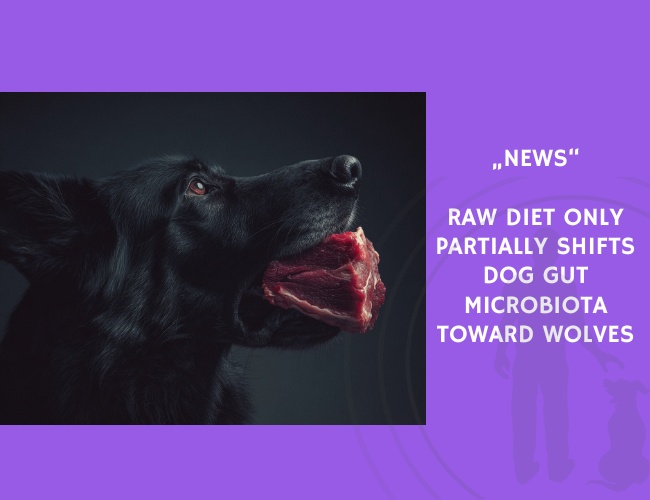Jia Xu et al. (2021) investigated the impact of diet on the gut microbiota of dogs, comparing them to wolves as a wild reference. Six American Staffordshire Terriers were shifted from a starch-rich kibble diet to a raw meat diet, while six zoo-housed wolves remained on raw meat. Fecal samples were analyzed over a 28-day dietary intervention.
Key Findings:
- Immediate microbial shift: Within the first week of raw feeding, dogs showed an increase in Fusobacteria and Bacteroidetes, taxa typically associated with protein fermentation.
- Loss of starch fermenters: Genera such as Faecalibacterium, Catenibacterium, and Megamonas declined in raw-fed dogs, aligning with wolf microbiota profiles.
- Incomplete convergence: Even after four weeks, dogs’ microbiota remained distinct from wolves, with persistent differences such as higher Lactobacillus in dogs.
Conclusion: The study demonstrates that while dietary change can shift the canine gut microbiome closer to that of wolves, domestication-related adaptations to starch digestion continue to shape the microbiota. This suggests that evolutionary history and selective breeding leave lasting imprints beyond short-term dietary adjustments.
Source: Xu, J., Becker, A. A. M. J., Luo, Y., Zhang, W., Ge, B., Leng, C., Wang, G., Ding, L. S., Wang, J., Fu, X., & Janssens, G. (2021). The fecal microbiota of dogs switching to a raw diet only partially converges to that of wolves. Journal: Frontiers in Microbiology, Volume 12. Publication Date: September 29, 2021. Authors: Jia Xu et al.










